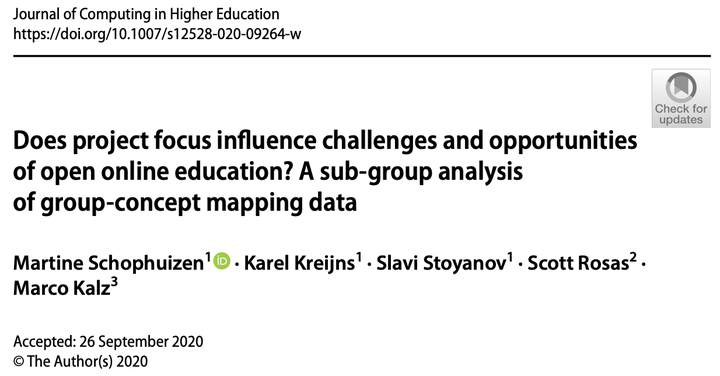Does project focus influence challenges and opportunities of open online education? A sub‐group analysis of group‐concept mapping data

Abstract
Openness in education is not a consistent term or value since “open” is used to describe various things and often means different things to different individu- als. In a research context, it is important to identify the many interpretation(s) and perspectives of openness being investigated, especially since the underlying ideas behind these different interpretations and contexts can yield different results. Not much empirical research on the implementation aspects of open education exists, especially comparing open educational resources (OER) and open online education (OOE). This empirical study addresses this gap, exploring identification and prior- itization of organizational challenges and opportunities of two subgroups of projects (i.e. OER focused or OOE focused) within various higher education institutions in The Netherlands. The main research question in this study is: Does the project char- acter (OER focus vs. OOE focus) of innovation projects lead to perceived differ- ences by actors involved in their implementation? Findings indicate that there are differences in conceptual as well as practical representation between the two groups. These findings imply that higher education institutions need to internally adapt to the needs of various manifestations of “openness” to be able to fully benefit from opportunities and overcome challenges.
Schophuizen, M., Kreijns, K., Stoyanov, S., Rosas, S., & Kalz, M. (2020). Does project focus influence challenges and opportunities of open online education? A sub-group analysis of group-concept mapping data. Journal of Computing in Higher Education, 33, 255-280. https://doi.org/10.1007/s12528-020-09264-w